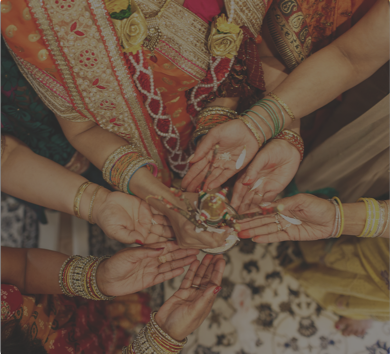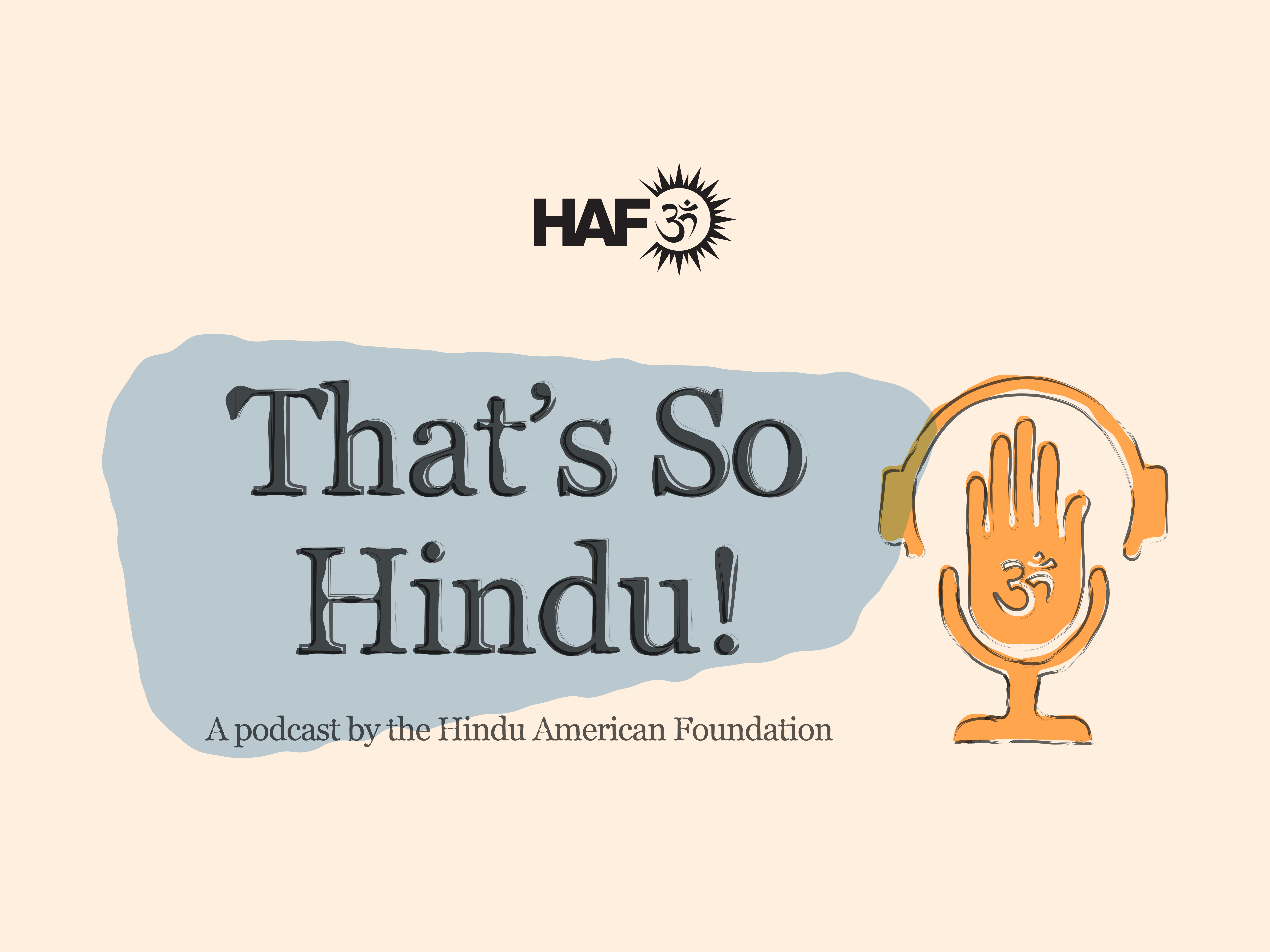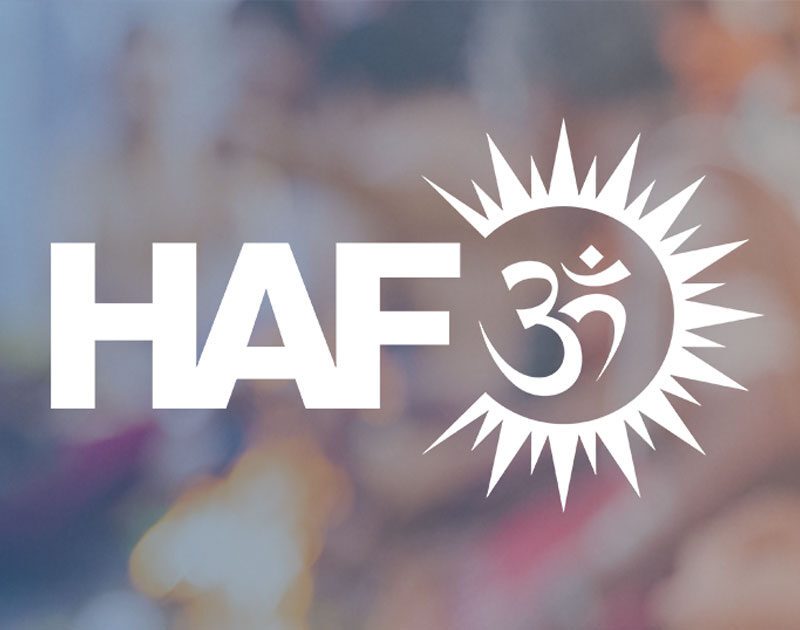
High school is supposed to be the time you find who you are. You are supposed to discover your true self, your true identity. But that process went a little different for me. I completely lost my identity, before I found it again.
Entering high school, I was proud to be an Indian, vegetarian, Hindu. I had no problem sharing my culture and expressing my Hindu values. However, after entering freshman year, I began to lose my personal pride. I began to doubt my beliefs simply because they were not the same as my peers. I wanted to conform to the norm, not express my unique identity. I was tired of being different. I just wanted to fit in.
Throughout middle and high school, I had heard the unoriginal caste and cow jokes. I always laughed along with my peers, so on the outside I looked unbothered. I did this as a defense mechanism. I figured that if I could “laugh it off” then it would not really affect me. I thought that suppressing my inner feelings and covering it with indifference was the only solution. I did that for many years, but one day, it was too much.
I was at my friend’s 15th birthday party. We were playing basketball outside and one of the guys began questioning me about Hinduism. I knew his intentions were to make fun of me and not to learn so I gave him short answers hoping he would just move on. He continued to make jokes, as everyone on the court was laughing. I’ve heard many creative jabs at Hinduism but what he was saying was quite ridiculous. He looked at me and said:
“So does reincarnation mean you can jump over that fence, kill yourself, turn into an Eagle, and fly away?”
I’ll never forget that feeling of being completely helpless. I didn’t want to be who I was and I was confused on who I “should” be. I was angry with my peers for making the jokes, but then I proceeded to blame myself and my upbringing for being in this situation. I was frustrated that I was so misunderstood. Everything about me was “exotic.” I could not even eat a single meal without being mocked for my vegetarian diet.
From that point on, school was a struggle. I never told anyone how I felt because there was no way I wanted to openly admit I was a victim of bullying. I felt like that would make me a total loser. So I couldn’t tell anyone how I was feeling because of my fear of looking stupid and I therefore internalized my anger, which turned to sadness and feelings of dejection. I walked through the halls with feelings of rejection. If I saw a friend, I’d turn the other way in hopes of avoiding communication, because if I didn’t have to talk, then I couldn’t say anything “stupid” and be made fun of. If I did speak, I ran everything through my head three times beforehand to make sure I wouldn’t embarrass myself. The simple act of speaking became such a struggle as I would put so much time, effort, and thought into what I should or shouldn’t say. That was probably the worst part. I had this continuous burden of thinking what I had to say was just irrelevant and useless. That made me feel worthless and that’s not a feeling any teenager should feel.
>At home, I did a pretty good job of hiding my complete loss of confidence. With my family, I was still the outgoing, comical kid I had always been. It was easy to “put myself out there” with people who obviously accepted me. But at school, I was shy and quiet. But this façade with my family only lasted for so long. My parents started to notice my drop in confidence as I began to shy away from opportunities. Anytime my parents would confront me about it, I would get angry at them and answer with the typical angry teen response: “It’s nothing. I’m fine. Leave me alone. Stop asking.” My parents were obviously confused since I was projecting my anger onto them, making it seem like they were at fault. The bullying at school started to have indirect consequences on my relationships with my family.
Once I became conscious of this, I was irritated at myself for letting my school issues affect my family relationships. I was in this continuous cycle of hatred, as I kept getting mad at every subsequent consequence of the bullying.
This continued for a couple years until I finally regained my confidence. I took my hatred and decided to turn it into positive energy. I knew that my peers were learning much of their misconceptions of Hinduism from the school textbooks. So I began reviewing high school Texas History textbooks and formally corrected the mistakes to what my research deemed correct. In my sophomore year, I contacted the Hindu American Foundation in Washington D.C. and worked with them to reach out to the textbook publishers and the Texas State Board of Education. This two-year process eventually led to significant reforms, with Texas history textbooks now portraying Hinduism far more accurately in their latest editions.
However, not all textbooks are reflective of a better understanding of Hinduism. More importantly, other Hindu students across the country didn’t have the same opportunities I did to try to correct stereotypes about Hinduism. The HAF bullying report, “Classroom Subjected,” discusses in detail how Hindu students are bullied, sometimes because the content in their textbooks doesn’t reflect who they are as Hindu Americans. As I go to college, I want to make sure that future generations of middle and high school Hindu Americans don’t feel they have to be put on the spot and isolated because of their religion.







































